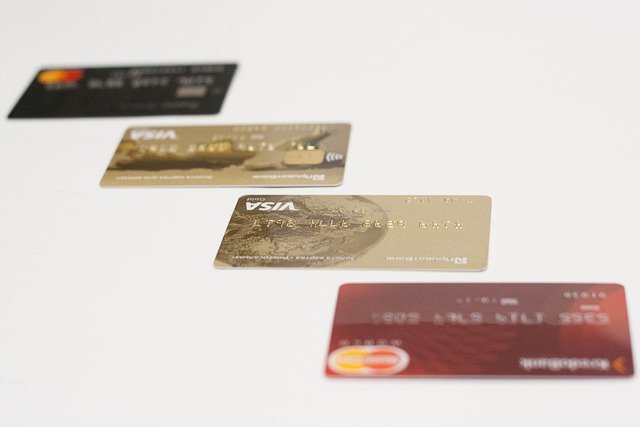credit-repair
Experts Tell You How To Repair Your Credit Score

Whether you got your credit cards on your college campus, got carried away on one too many shopping sprees or got hit hard by the recent economic downturn, you’ve probably damaged your credit. The following tips will help you take steps to begin to repair it.
Financing homes can be difficult if you have bad credit. If you do have poor credit, apply for an FHA loan; these loans are backed by the United States government. FHA loans are also great when a borrower doesn’t have the high down payment that most banks require.
Getting home financing is no small feat, especially if your credit score is less than perfect. If this is the case, you can apply for a loan through the Federal Housing Administration (FHA). The credit requirements for these loans are more lenient than those of conventional lenders, and the federal government also guarantees the loans. You might be able to get an FHA loan even if you cannot afford closing costs or down payments.
If you have credit cards with a balance that exceeds 50% of your credit limit, you should pay it down to below 50%.
Interest Rates
Make sure that you are never using more than 50% of your credit card’s limit. When balances are over 50%, your credit rating goes down significantly, so try to either spread out your debt or, ideally, pay off your credit cards.
You can lower your debt by refusing to acknowledge the part of your debt that has been accrued by significantly high interest rates if you are being charged more than you should be. Creditors are skirting aspects of law when they hit you with high interest rates. You did however sign a contract saying that agrees you will pay off the debt. You may wish to make a legal claim that the interest rates are too high if you want to sue your lenders.
You should always make an effort to pay your bills off on time and in full.Your FICO score will begin to increase if you pay the bills that are past due.
No credit repair company can remove factual information, no matter how damaging, from your credit report. All information remains on your credit report for a period of seven years or more. Be aware, however, that incorrect information can indeed be erased from your record.
You need to work with your creditors when you are trying to improve your credit.This will assure them that you stabilize your debt and start working towards a better financial situation.
Some ways of dealing with debt repayment are better for your credit score than others, so it’s important to check into your options and find one that won’t hurt you in the long term. Creditors are only trying to get the money and really aren’t interested on how that hurts your score.
Make sure you thoroughly research into any credit repair agency or counselor before you do business with them. While some counselors are legitimate, offering genuinely helpful services, others have ulterior motives. Some are simply fraudulent and are out to get your money. Wise consumers always verify that credit counselors are legitimate before dealing with them.
Even if the item itself is correct, any problems with its details, such as an inaccurate date or amount, could make the entire entry invalid and eligible for removal.
Check over your credit bill each month and make sure there aren’t any discrepancies. If there are late fees you don’t deserve, you need to get in touch with the credit card company right away to avoid adverse action.

Contact the credit card company and ask to get your card limit lowered. This will prevent overextending yourself and lets the company know about your responsible borrowing habits. You could get credit easier in the future.
The most it will only draw further attention to the bad aspects of the report.
Avoid using credit cards at all. Use cash for purchases instead while you need to buy something. If you do use a credit card, pay it back immediately.
Read your negative reports carefully when attempting to rebuild your credit. Even though the particular credit item may not accurate, finding an error in the amount, date, or something else can cause the entire item to be stricken from your report.
Be very careful about credit professionals who state that tells you they could fix your credit. Since a lot of people go through credit problems, there are a lot of businesses that have popped up to take advantage of the situation.Investigate any lawyer before hiring them to help you in repairing your credit.
A nasty credit crunch can generally be caused by lacking the funds to pay back. Even if the payments you are making are the minimum ones, every bit that you send can help keep your creditors happy, making them less likely to contact debt collectors.
Try joining a credit score if you’re still struggling to boost your credit rating by opening new lines of credit. With help from a credit union you might get better rates than at another bank, since credit unions better understand the current area compared to the national situation.
Make out a plan or program to pay past due and collection agencies.
Talk to creditors to try using alternate payment plans directly to figure out a different way to pay your bill if you cannot make monthly payments.
If you see any erroneous information on your credit report, file a dispute so you can have the information removed. Create a dispute letter for agencies that have the error, and submit additional supporting documents along with it. When you mail your dispute package, be sure to make arrangements for confirmation of receipt. In this way, you will have documentation that your information has been received.
Creditors look at your debt in relation to your income. You will be looked at as a greater credit risk if your debt is too high in comparison with your income to handle.You don’t have to pay off your debt in full right away, so you should make a plan to repay in a timely fashion and follow that schedule.
Repairing a poor credit score can seem like a daunting task, but improving your score is possible with guidance and knowledge. The information given in this article is sure to lead you to a higher level of financial security.
Check over your credit bill each month to make sure there are no errors. If you spot any mistakes, contact the credit company right away to keep them from reporting the mistakes.

